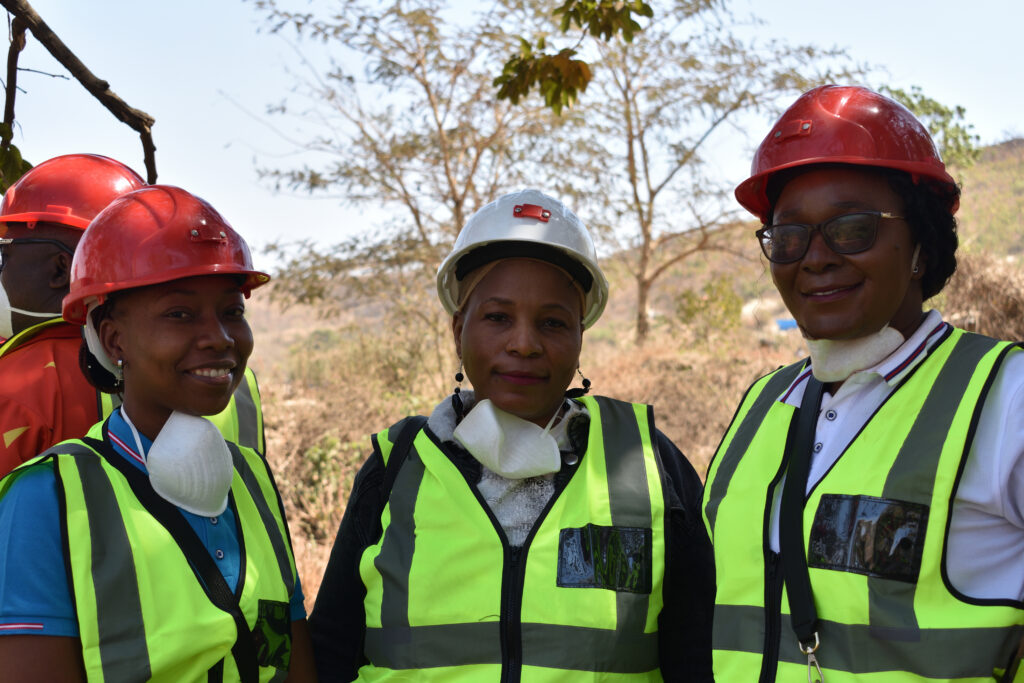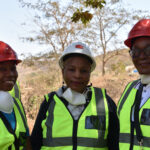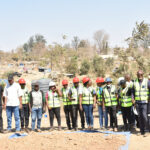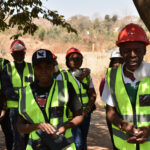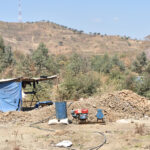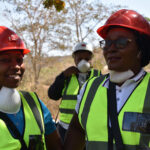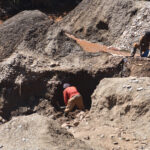26 August, 2025In Zimbabwe, where artisanal and small-scale mining (ASM) accounts for over half of the country’s gold production, unions are stepping up to improve health, safety and organization for informal miners.
IndustriALL Global Union affiliates in Zambia and Zimbabwe, the Mine Workers Union of Zambia (MUZ) and the Zimbabwe Diamonds and Allied Minerals Workers Union (ZDAMWU), have committed to supporting these efforts.
Artisanal miners, who often rely on basic tools and minimal mechanization, face severe risks. Many lack proper personal protective equipment, exposing them to toxic substances like mercury, which harms lungs, skin and eyes while polluting the air, water and soil.
Poorly ventilated pits increase the risk of lung diseases like silicosis and pneumonia. Deep shafts, some reaching 40 meters, are prone to collapses and flooding, often resulting in injuries or deaths. Miners also lack adequate training on safety protocols, worsening these dangers.
On 20-21 August a delegation from IndustriALL Sub-Saharan Africa regional office, MUZ and ZDAMWU, visited artisanal mines in Mazowe, at the former Mettalon-owned Jumbo Mine and in Penhalonga near Mutare. The delegation, which included Zambia’s Luapula Mineral Miners Association representing over 200 small-scale mines which has signed a memorandum of understanding with MUZ, observed hazardous practices, such as miners descending shafts using ropes and communicating through plastic pipes. Further, women miners were processing gold using mercury with bare hands.
At a meeting in Mutare on August 22, artisanal miners requested financial support to mechanize operations and guidance on improving safety. Government officials, including representatives from the Office of the President and Cabinet, endorsed formalizing the ASM sector, urging miners to organize and improve wages and conditions. The Ministry of Mines and Minerals said that it provides loans and information to registered miners, while the Ministry of Labour emphasized support for better working conditions, contracts and wages. The National Social Security Authority highlighted its health and safety training programmes.
Other organizations, including the Centre for National Resources and Governance and the Zimbabwe Federation of Trade Unions, also participated.
Union leaders stressed cooperation with ASM associations to improve safety and decent work.
George S. Mumba, MUZ general secretary said:
“ASM associations must work with trade unions to improve working conditions and health and safety.”
“We are calling for a national plan on responsible mining practices and standards that include ASM,”
added Justice Chinhema, ZDAMWU general secretary.
IndustriALL Sub-Saharan regional secretary, Paule-France Ndessomin, said:
“We continue to call for the formalization of ASM as most unemployed youth are earning a living in informal mining and for the protection of women who are exposed to hazardous chemicals and face gender-based violence and harassment.”
These efforts align with the International Labour Organization’s Recommendation 204 on the transition from informal to the formal economy and the African Mining Vision, which advocate for formalizing ASM. While Zambia has ratified International Labour Organization Convention 176 on safety and health in mines, Zimbabwe is yet to do so.
The cooperation between MUZ, ZDAMWU and ASM associations is backed by Union to Union under IndustriALL’s Union Building Project, promoting cross-border learning and stronger organization for Zimbabwe’s artisanal miners.
Zimbabwe’s more than 500 000 ASM extract gold, lithium, diamonds and platinum group metals and other minerals that include chrome, cobalt, copper, iron ore, tin, and gemstones.
